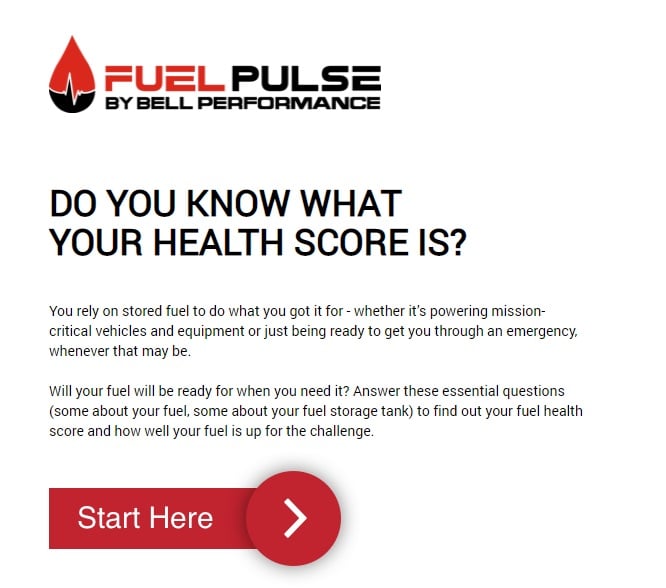What’s Your Fuel Health Score? The Webinar Transcript
As a service to our customers, dealers, and friends, Bell Performance hosts quarterly webinars on fuel topics of interest to their friends and their...

Believe it or not, if you switched diesel fuel providers in the last year, you’re at greater risk for developing stored fuel problems. It’s even possible you may have problems right now and not know it.
When you receive fuel from your fuel supplier, you’re under the assumption that they’re delivering you a quality product that’s within specification. Your fuel COA should confirm this for every shipment.
If you think about it, switching fuel providers means you’re at the mercy of assuming that this new provider is doing everything they’re supposed to. How familiar are you with their housekeeping methods? Assuming you didn't change suppliers because of an overt problem, you probably gained confidence over time that your previous supplier was, at least, good in that area.
Companies switch fuel providers for many reasons. Price can be a factor but isn’t always the primary driver. Another fuel provider might offer better terms or better customer service, or even a better product (less likely, given standardization within the industry).
While “familiarity may be breed contempt” in some areas, familiarity with fuel suppliers is valuable because you can know what to expect. You can have an implicit confidence in that area. Switching fuel suppliers means you have no track record to know if problems are going to get passed on. You can only hope and pray. The health of your fuel now depends on assumptions and hopes.
What if your new supplier doesn’t always follow required housekeeping procedures? The resulting problems will be passed on to you and the rest of the customers who receive the same fuel.
For example, it could be something as simple as not fully cleaning out delivery trucks between loads of different types of fuel. Reports of diesel fuel contamination with trace amount of ethanol are more common than you’d suspect. And this is a common cause of storage tank corrosion, with certain strains of fuel microbes feeding off the ethanol traces and producing corrosive acetic acid in the tank.
Do you know how well your new fuel supplier stays on top of the simple things that get taken for granted?
If you have any doubts about this, it might be a good idea to monitor your stored fuel a little more closely. Keep on top of the water buildup in your storage tanks. Check for fuel microbes on a monthly basis. And tag team with a partner that can bring effective solutions to the table in your time of need. Solutions that are right for your situation, not just one-size-fits-all.

As a service to our customers, dealers, and friends, Bell Performance hosts quarterly webinars on fuel topics of interest to their friends and their...

As a service to our customers, dealers and friends, Bell Performance hosts quarterly webinars on fuel topics of interest to their friends and their...

As a service to our customers, dealers and friends, Bell Performance hosts quarterly webinars on fuel topics of interest to their friends and their...